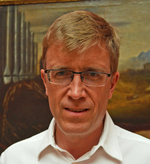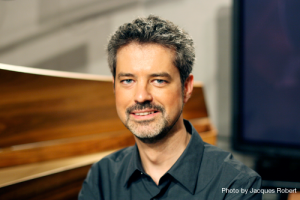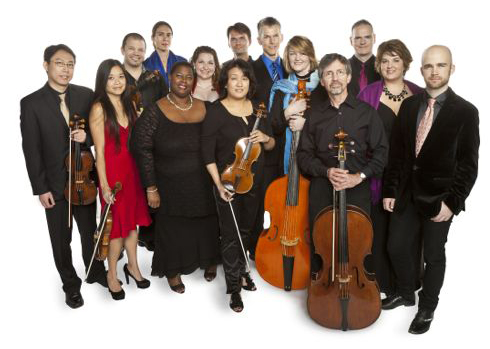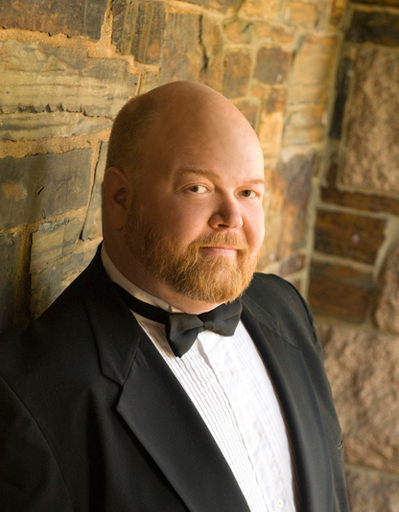Celebrating the Tercentenary of C. P. E. Bach:
Concerts
Thursday, October 2, Anabel Taylor Chapel, 1pm
Free and open to the public.

David Yearsley, organ |
Bach & Sons at the Organ
|
Thursday, October 2, Carriage House Café, 8pm
Free and open to the public.

Tom Beghin, clavichord |
Music by C. P. E. Bach
|
Friday, October 3, B20 Lincoln Hall, 1pm
Free and open to the public.

Andrew Willis, fortepiano Carl Philipp Emanuel Bach set out to influence keyboard composers of his day both through his performance treatise of 1753/1762 and through a widely disseminated production of keyboard compositions unprecedented for quantity and originality. This chronological recital interleaves works from four decades of Bach’s career with those of contemporaries displaying a stylistic kinship with his work. After establishing a baseline with a sonata from the test pieces in which Emanuel illustrated the admonitions of his Versuch, we discover in the work of his elder brother Friedemann an equally strong personality exploiting the rhetoric of surprise and sensibility in his unique way. A single Adagio suffices to reveal Müthel, who arrived in the Bach family circle the last year of Sebastian’s life, as a masterful if slightly longwinded practitioner of contrapuntal sensitivity. Another hallmark of Emanuel’s creativity, his penchant for limitless variation upon a harmonized bass, is represented by three short movements with pedagogical intent. Remaining within the traditional Thuringian orbit of the Bach family, we sample the wares of Wolf in Weimar and Hässler in Erfurt, each in his way reflecting a careful synthesis of Bachian expressivity and character with an orderly formal system. There is no competing with the indefatigable Bach, however; in the bracing air of Hamburg his imagination catapults to new heights of contrast, wit, and expressive concentration during the final flowering of his career. |
A Keyboard Kinship:
|
Friday, October 3, Barnes Hall, 8pm
Free and open to the public.

Ars Lyrica Houston Founded in 1998 by harpsichordist and conductor Matthew Dirst, Ars Lyrica Houston presents a diverse array of music from the seventeenth and eighteenth centuries on period instruments. The ensemble’s distinctive programming favors little-known Baroque dramatic and chamber works, and its pioneering efforts have begun to attract international attention: the ensemble’s world première recording of Johann Adolf Hasse’s Marc’Antonio e Cleopatra features rising opera stars Jamie Barton and Ava Pine and was nominated for a Grammy Award for Best Opera 2011. This CD was hailed recently by Early Music America as “a thrilling performance that glows in its quieter moments and sparkles with vitality.” Ars Lyrica’s most recording—of Domenico Scarlatti’s comic intermezzo La Dirindina and his chamber cantata Pur bel sonno—also features mezzo Jamie Barton (recently crowned Cardiff Singer of the World 2013) and soprano Céline Ricci. Details about forthcoming recordings and upcoming programs can be found at www.arslyricahouston.org. |
Atkinson Forum Concert
|
Saturday, October 4, B20 Lincoln Hall, 2pm
Free and open to the public.

Ryan MacEvoy McCullough, piano |
Atkinson Forum: Touching Instruments
Secrets of Antikythera takes its inspiration from the Antikythera Mechanism, an ancient mechanical device for plotting the position of the planets in the night sky. Discovered in an ancient shipwreck off the Greek island of Antikythera in the early twentieth century, its function was not discovered until decades later. The mechanism is remarkable for its precision and sophistication, the likes of which had never been seen before were not seen again for centuries. In this piece, I imagine the creator of this device, whose identity will likely never be known. What joys and sorrows must this person have encountered while undertaking such a remarkable project? The prologue attempts to capture the sense of wonder at the night sky that might have inspired the creation of this device. Beginning in the second movement, a simple, slowly spinning melodic idea emerges. In each successive movement, this idea is progressively refined until reaching its final form in Movement VIII, "Vision Fulfilled." Finally, the epilogue presents the preceding ideas as they might appear over a vast gap in time: corroded, obscured, with only the bare outlines still distinguishable. The prologue is played entirely with electronically-activated sounds; as the piece goes along, the electronics gradually give way to the piano until Movement VIII is played entirely without electronics. Finally, electronics return in the epilogue, sometimes complementing the traditional piano material, sometimes obscuring it. |
Saturday, October 4, Barnes Hall, 4pm
Free and open to the public.
|
Members of the Cornell Baroque Orchestra |
Music by C. P. E. Bach
|
Saturday, October 4, Anabel Taylor Chapel, 8pm
Free and open to the public.

Peter Sykes, clavichord |
Recital
|
Conference | Program | Concerts | Abstracts | Accommodations
